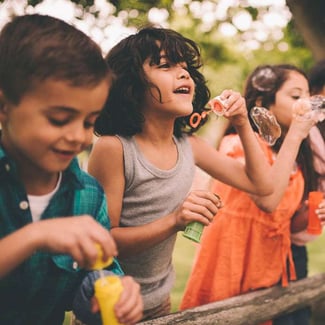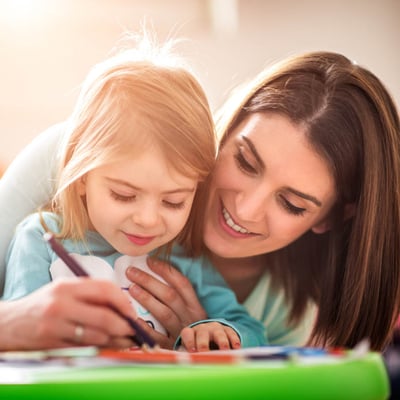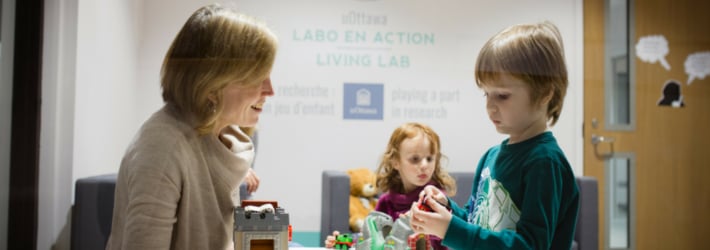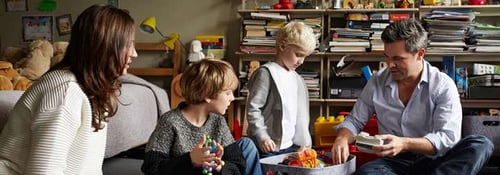
2024
O’Brien, B., Ebeid, M., & Atance, C. M. (2024). "Who Feels Happier Right Now?: the impact of temporal distance on children’s judgements of emotional intensity. British Journal of Developmental Psychology.
Ayson, G. & Atance, C. M. (2024). Children’s mental time travel into the future: a functional perspective. Philosophical Transactions of the Royal Society B.
Dueck, K., Castro, A. W., Kamawar, D., Milyavskaya, M., Gallitto, E., & Atance, C. M. (2024). The effects of cognitive and environmental factors on children’s early saving. Cognitive Development.
O’Brien, B., Rodriguez, M., Gallitto, E., & Atance, C. M. (2024). Tomorrow versus a year from now : Do children represent the near and distant future differently? Journal of Experimental Child Psychology, 241.
2023
Tanguay, A. F. N., Gardam, O., Archibald, J., Ayson, G., & Atance, C. M. (2023). Using an episodic specificity induction to improve children’s future thinking. Frontiers in Psychology: Section, Cognition, 14.
Atance, C. M., Ayson, G., & Martin-Ordas, G. (2023). Moving beyond “Spoon” tasks: When do children autocue their episodic future thought? WIREs Cognitive Science.
Jerome, E., Kamawar, D., Milyavskaya, M., & Atance, C. (2023). Preschoolers’ saving: The role of budgeting and psychological distance on a novel token savings task. Cognitive Development.
Tsui, A. S. M., & Atance, C. M. (2023). Young children’s saving and their episodic future thinking. Journal of Cognition and Development, 24, 438-457.
Mazachowsky,T.R., Atance, C. M., Rutt, J. L., & Mahy, C. E. V. (2023). Verbal explanations and item choices as joint indices of children’s episodic foresight. Journal of Cognition and Development, 24 (1), 17-36.
2022
Burns, P., O'Connor, P. A., Atance, C., & McCormack, T. (2022). The effects of cueing episodic future thinking on delay discounting children, adolescents, and adults. Cognition, 218.
2021
Atance, C. M., Rutt, J. R., Cassidy, K., & Mahy, C. E. V. (2021). Young children’s future-oriented reasoning for self and other: effects of conflict and perspective. Journal of Experimental Child Psychology, 209. [infographic]
Burns, P., McCormack, T., O’Connor, P., Fitzpatrick, A., Atance, C. M. (2021). The effect of episodic future thinking on young children's future-oriented decision making. Developmental Psychology, 57, 976-990.
Martin-Ordas, G., & Atance, C. M. (2021). What will you want tomorrow? Children—but not adults- mis-predict another person’s future desires. PLoS ONE, 16(11).
Kopp, L., Hamwi, L., & Atance, C. M. (2021). Self-projection in early development: Preschoolers’ reasoning about changes in their future and past preferences. Journal of Cognition and Development, 22, 246-266. [infographic]
Burns, P., O’Connor, P. A., Atance, C., & McCormack, T. (2021). More later: Delay of gratification and thought about the future in children. Child Development, 92, 1554-1573. https://doi.org/10.1111/cdev.13521
Caza, J. S., O’Brien, B. M., Cassidy, K. S., Ziani-Bey, H. A., & Atance, C. M. (2021). Tomorrow will be different: Children’s ability to incorporate an intervening event when thinking about the future. Developmental Psychology, 57, 376–385.
2020
Mazachowsky, T. R., Atance, C. M., Mitchinson, S., Mahy, C. E. V. (2020). “What should you bring with you to this place?”: Examining children’s episodic foresight using open-ended questions. The Journal of Genetic Psychology (Special issue on temporal cognition), 181, 223-236.
Tanguay, A. N., Palombo, D. J., Atance, C. M., Renoult, L., & Davidson, P. S. R. (2020). Scrutinizing the grey areas of declarative memory: Do the self-reference and temporal orientation of a trait knowledge task modulate the Late Positive Component (LPC)? (Special issue in honor of Endel Tulving: Memory, consciousness, and beyond). Neuropsychologia, 142, 107444.
O’Brien, B., Rutt, J. L., & Atance, C. M. (2020). Are all distances created equal? Insights from developmental psychology (Commentary on Gilead, Trope, & Liberman). Behavioral and Brain Sciences, 43, E140.
Mahy, C. E. V., Moses, L., O'Brien, B., Castro, A., Kopp, L., & Atance, C. M. (2020). The roles of perspective and language in children’s ability to delay gratification. Journal of Experimental Child Psychology, 192, 104767.
Burns, P., Fay, O., McCafferty, M-F, McKeever, V., Atance, C., & McCormack, T. (2020). Examining children’s ability to delay reward: Is the delay discounting task a suitable measure? Journal of Behavioral Decision Making, 33, 208-219.
2019
Goulding, B. W., Atance, C. M., & Friedman, O. (2019). An ownership-advantage in preschoolers’ future-oriented thinking. Developmental Psychology, 55, 1702–1708.
Atance, C. M., Celebi, S. N., Mitchinson, S., & Mahy, C. E. V. (2019). Thinking about the future: comparing children’s forced-choice versus “generative” responses in the “spoon test.” Journal of Experimental Child Psychology, 181, 1-16.
Barragan-Jason, G., Atance, C., Stieglitz, J, Hopfensitz, A., & Cauchoix, M. (2019). Commentary: Revisiting the marshmallow test: a conceptual replication investigating links between early delay of gratification and later outcomes. Frontiers in Psychology, section Developmental Psychology. [PDF]
Martin-Ordas, G., & Atance, C. M. (2019). Adults’ performance in an episodic-like memory task: the role of experience. Frontiers in Psychology, section Cognition. [PDF]
Bauckham, G., Lambert, R., Atance, C. M., Davidson, P. S. R., Taler, V., & Renoult, L. (2019). Predicting our own and others’ future preferences: The role of social distance. Quarterly Journal of Experimental Psychology, 72, 634-642.
Caza, J. S., & Atance, C. M. (2019). Children's behavior and spontaneous talk in a future thinking task. Psychological Research, 83, 761-773.
2018
Cauchoix, M., Chow, P. K. Y., van Horik, J. O., Atance, C. M., Barbeau, E. J., Barragan-Jason, G., … Morand-Ferron, J. (2018). The repeatability of cognitive performance: a meta-analysis. Philosophical Transactions of the Royal Society B, 373. [PDF]
Barragan-Jason, G., Atance, C. M., Kopp, L., & Hopfensitz, A. (2018). Two facets of patience in young children: Waiting with and without an explicit reward. Journal of Experimental Child Psychology, 171, 14-30.
2017
Kopp, L., Atance, C. M., & Pearce, S. (2017). “Things aren’t so bad!”: Preschoolers over-predict the emotional intensity of negative outcomes. British Journal of Developmental Psychology, 35, 623-627.
Atance, C. M., & Caza, J. S. (2017). “Will I know more in the future than I know now?” Preschoolers’ judgments about changes in general knowledge. Developmental Psychology, 54, 857-865.
Mahy, C. E. V., Bernstein, D. M., Gerrard, L. D., & Atance, C. M. (2017). Testing the validity of a continuous false belief task in three to seven year old children. Journal of Experimental Child Psychology, 160, 50-66.
Martin-Ordas, G, Atance, C. M., & Caza, J. S. (2017). Did the popsicle melt? Preschoolers’ performance in an episodic-like memory task. Memory, 25, 1260-1271.
Barragan-Jason, G., & Atance, C. M. (2017). A New Approach to Measuring Patience in Preschoolers. Developmental Psychobiology, 59, 738-748.
Atance, C. M., Metcalf, J. L., & Thiessen, A. (2017). Helping Children Save: Tell Them They Can (if They Want to). Cognitive Development, 43, 67-79.
2016
Lee, W. S. C., & Atance, C. M. (2016). The effect of psychological distance on children's reasoning about future preferences. PLoS ONE 11(10): e0164382. [PDF]
Caza, J. S., Atance, C. M., & Bernstein, D. M. (2016). Older (but not younger) preschoolers understand that knowledge differs between people and across time. British Journal of Developmental Psychology, 34, 313-324.
Renoult, L., Kopp, L., Davidson, P. S. R., Taler, V., & Atance, C. M. (2016). You'll change more than I will: Adults' predictions about their own and others' future preferences. The Quarterly Journal of Experimental Psychology, 69, 299-309.
2015
Atance, C. M. (2015). Young children's thinking about the future. Child Development Perspectives, 9, 178-182.
Atance, C. M., Louw, A., & Clayton, N. S. (2015). Thinking ahead about where something is needed: New insights about episodic foresight in preschoolers. Journal of Experimental Child Psychology, 129, 98-109.
Thompson, E. L., Plowright, C. M. S., Atance, C. M., & Caza, J. S. (2015). Reasoning and relatedness. Evolution and Human Behavior, 36, 38–43.
2014
Atance, C. M., Metcalf, J. L., Martin-Ordas, G., & Walker, C. L. (2014). Young children’s causal explanations are biased by post-action associative information. Developmental Psychology, 50, 2675–2685.
Hanson, L. K., Atance, C. M., & Paluck, S. W. (2014). Is thinking about the future related to theory of mind and executive function? Not in preschoolers. Journal of Experimental Child Psychology, 128, 120-137.
Bélanger, M. J., Atance, C. M., Varghese, A. L., Nguyen, V., & Vendetti, C. (2014). What will I like best when I’m all grown up? Preschoolers’ understanding of future preferences. Child Development, 85, 2419-2431.
Martin-Ordas, G., Atance, C. M., & Caza, J. S. (2014). How do episodic and semantic memory contribute to episodic foresight in young children? Frontiers in Psychology, 5(732), 1-11 . [PDF]
Atance, C. M., & Sommerville, J. A. (2014). Assessing the role of memory in preschoolers’ performance on episodic foresight tasks. Memory, 22, 118-128.
Hanson, L. K., & Atance, C. M. (2014). Episodic foresight in autism spectrum disorders. Journal of Autism and Developmental Disorders, 44, 674-684.
Martin-Ordas, G., Atance, C. M., & Call, J. (2014). Remembering in tool-use tasks in children and apes: The role of the information at encoding. Memory, 22, 129-144 .
2012
Martin-Ordas, G., Atance, C. M., & Louw, A. (2012). The role of episodic and semantic memory in episodic foresight. Learning and Motivation, 43, 209-219.
Atance, C. M., Metcalf J. L., & Zuijdwijk, A. M. (2012). Preschoolers’ explanations of actions based on past realities and false beliefs. European Journal of Developmental Psychology, 1-14.
2011
Davies, J., Atance, C. M., & Martin-Ordas, G. (2011). A framework and open questions on imagination in adults and children. Imagination, Cognition, and Personality, 31, 143-157.
Metcalf, J. L., & Atance, C. M. (2011). Do preschoolers save to benefit their future selves? Cognitive Development, 26, 371-382.
McCormack, T., & Atance, C. M. (2011). Planning in young children: A review and synthesis. Developmental Review, 31, 1-31.
2010
Atance, C. M., Bernstein, D. M., & Meltzoff, A. N. (2010). False belief understanding: It’s not just what children say, but how long it takes them to say it. Cognition, 116, 297-301.
Atance, C. M., Bélanger, M., & Meltzoff, A. N. (2010). Preschoolers’ understanding of others’ desires: fulfilling mine enhances my understanding of yours. Developmental Psychology, 46, 1505-1513.
Quon, E., & Atance, C. M. (2010). A comparison of preschoolers’ memory, knowledge, and anticipation of events. Journal of Cognition and Development, 11, 37-60.
2009
Atance, C. M., & Jackson, L. K. (2009). The development and coherence of future-oriented behaviors during the preschool years. Journal of Experimental Child Psychology, 102, 379-391.
2008
Jackson, L. K., & Atance, C. M. (2008). Future thinking in children with Autism Spectrum Disorders: A pilot study. Journal on Developmental Disabilities, 14, 40-45.
Atance, C. M. (2008). Future thinking in young children. Current Directions in Psychological Science, 17, 295-298.
2007
Atance, C. M., & Meltzoff, A. N. (2007). How developmental science contributes to theories of future thinking. Behavioral and Brain Sciences, 30, 314-315.
Bernstein, D. M., Atance, C. M., Meltzoff, A. N., & Loftus, G. R. (2007). Hindsight bias and developing theories of mind. Child Development, 78, 1374-1394.
2006
Atance, C. M., & Meltzoff, A. N. (2006). Preschoolers’ current desires warp their choices for the future. Psychological Science, 17, 583-587.
Before 2005
Atance, C. M., & Meltzoff, A. N. (2005). My future self: Young children’s ability to anticipate and explain future states. Cognitive Development, 20, 341-361.
Atance, C. M., & O’Neill, D. K. (2005). The emergence of episodic future thinking in humans. Learning & Motivation, 36, 126-144.
Atance, C. M., & O’Neill, D. K. (2005). Preschoolers’ talk about future situations. First Language, 25, 5-18.
Atance, C. M., & O’Neill, D. K. (2004). Acting and planning on the basis of a false belief: Its effects on 3-year-old children’s reasoning about their own false beliefs. Developmental Psychology, 40, 953-964.
Bernstein, D. M., Atance, C., Loftus, G. R., & Meltzoff, A. N. (2004). We saw it all along: Visual hindsight bias in children and adults. Psychological Science, 15, 264-267.
Atance, C. M., & O’Neill, D. K. (2001). Episodic future thinking. Trends in Cognitive Sciences, 5, 533-539.
O’Neill, D. K., & Atance, C. M. (2000). “Maybe my Daddy give me a big piano:” The development of children’s use of modals to express uncertainty. First Language, 20, 29-52.
Coambs, R. B., Jarry, J. L., Santhiapillai, A. C., Abrahamsohn, R. V. & Atance, C. M. (1996). The SISAP: A new screening instrument for identifying potential opioid abusers in the management of chronic nonmalignant pain within general medical practice. Pain Research and Management, 1, 155-162. [PDF]











.jpeg?width=189&height=200&name=Image_20240326_144058%20(2).jpeg)









